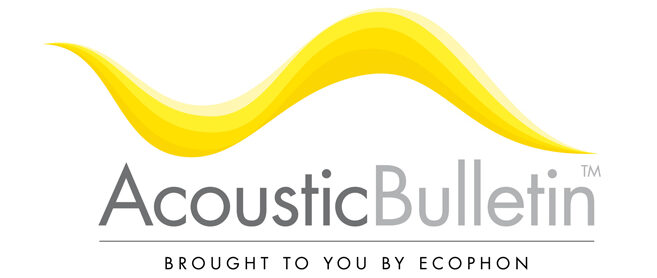
In modern open-plan offices, noise from conversations and background activities can significantly impact employees’ productivity and well-being. Active noise-cancelling (ANC) headphones are often employed as a personal solution to reduce distractions and control the acoustic environment. But how effective are these devices in enhancing performance, reducing stress, or improving the overall work experience? This article explores the research presented by Valtteri Hongisto at the recent Inter-Noise conference in Nantes.
Open-plan offices are often noisy, with conversations and other sounds disrupting concentration and reducing productivity. Background speech is especially disruptive, causing cognitive overload as the brain tries to process irrelevant speech, leading to stress and frustration.
ANC headphones are commonly used in open-plan offices as a tool to reduce distractions. These headphones work by generating sound waves that counteract external noise, providing a quieter environment. Many models also allow users to listen to masking sounds, such as white noise, which can further block out background speech. While these devices are widely adopted, questions remain about their actual impact on employee performance and well-being.
Testing ANC Headphones in an office environment
A recent study investigated the effectiveness of ANC headphones in reducing the negative effects of office noise. The experiment involved 54 participants who performed cognitive tasks in a controlled environment with background speech. Five sound conditions were tested:
- No headphones (reference condition)
- Headphones without ANC
- Headphones with ANC
- Headphones with masking sound
- Headphones with both ANC and masking sound
The study aimed to measure how these conditions affected cognitive performance (using serial recall and n-back tasks), physiological stress (using heart rate variability), and subjective experience of the noise environment.
No improvement in cognitive performance
The study found that ANC headphones did not improve cognitive performance. Across all conditions, including those with ANC and masking sound, participants performed similarly in tasks such as serial recall and the n-back test. This suggests that while ANC headphones might make the environment more pleasant, they do not directly enhance task performance in noisy environments.
No noticeable impact on reduction of stress level
In terms of physiological stress, measured through heart rate variability (HRV), the study also found no significant differences between the sound conditions. This means that while participants might have subjectively experienced less annoyance or distraction with ANC headphones, their physiological stress levels remained unchanged. The lack of a quiet reference condition in the study limits the conclusions about the exact role of noise reduction in mitigating stress.
Improving the subjective experience of noise
The most significant finding of the study relates to how participants felt about their noise environment. While cognitive performance and stress levels remained constant, participants reported that certain headphone configurations improved their experience. The use of ANC headphones, particularly when combined with masking sound, made the sound environment more pleasant and less disruptive.
- Headphones with masking sound and ANC (condition 5) were rated as the most effective at reducing speech-related annoyance and improving concentration.
- Headphones with ANC only (condition 3) made the environment more pleasant than without headphones, but this improvement was not enough to fully counteract the effects of background speech.
- However, simply wearing headphones without ANC or masking (condition 2) did not significantly improve the experience compared to having no headphones at all.
ANC reduced the perception of background speech, but participants found the noise from the masking sound itself slightly more annoying than background speech.
Limitations and future research directions
One important limitation of the study is the absence of a true quiet condition. This would have provided a clearer understanding of how ANC headphones compare to an ideal work environment without background noise. Additionally, the research suggests that while ANC headphones may improve the subjective experience, they are not a complete solution to office noise.
Future studies might explore the interaction between ANC, masking sounds, and different types of tasks. It’s also worth investigating the long-term effects of using ANC headphones, particularly in terms of cumulative stress and productivity over extended periods.
Conclusion: ANC headphones are no panacea
ANC headphones, particularly when used with masking sound, can improve the subjective experience of noise in open-plan offices by reducing speech-related annoyance. However, they do not significantly enhance cognitive performance or reduce physiological stress. For architects and acousticians designing office spaces, this highlights the importance of considering more comprehensive acoustic solutions beyond individual noise control devices. While ANC headphones can be a valuable tool for employees seeking control over their personal sound environment, they should not be relied upon as the sole solution for mitigating the negative impacts of office noise.
Source: “Active noise-cancelling headphones do not improve cognitive performance
in office noise environment”, Hongisto V., Radun J, Tervahartiala I-K, Kontinen V, Keränen J, Inter-Noise proceedings,2024

